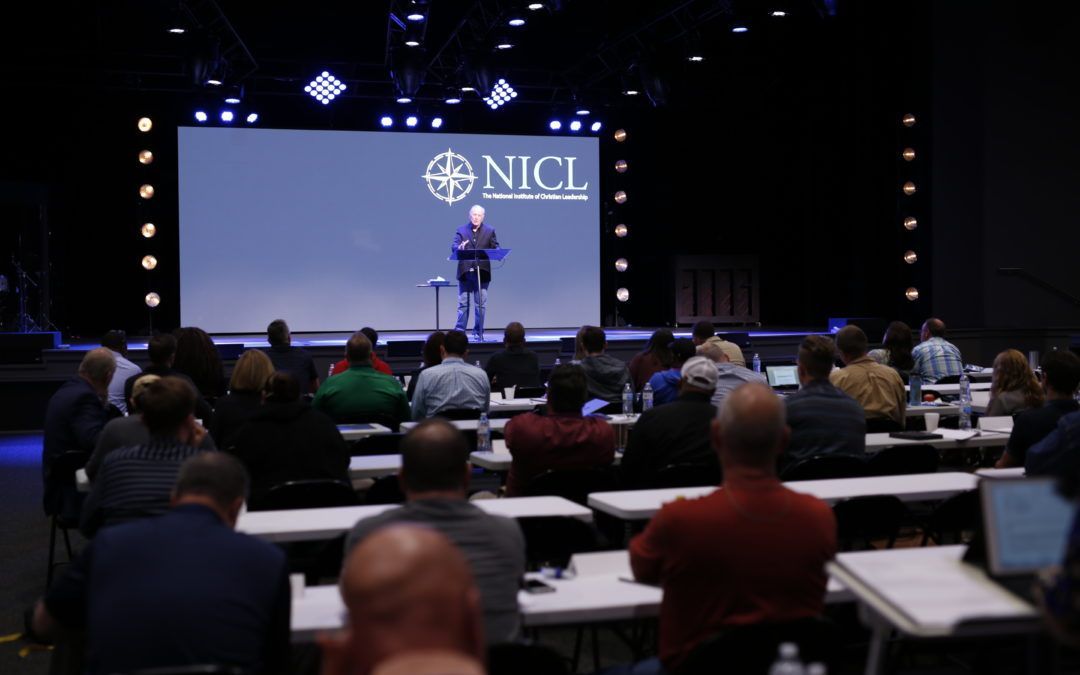The Key to True Power
Jesus overturned every worldly idea about power when He introduced the concept of servant leadership.
The Master’s question was breath-catchingly direct, and upon the tender flesh of their innermost unspoken desires it fell like a glowing coal. He said to them: “Do you wish to be the greatest in My kingdom?”
Unprepared, they hesitated momentarily, but their eyes revealed the desperate passion in their minds. No moderated tone, no downcast eyes, no contrived reticence could hope to hide the truth. Beyond their power to express it, more certainly than they wanted the Master to know, being great was the wonderful unattainable for such as they.
Never having known greatness, never having tasted power over more than a leaky fishing boat, they longed for it as impoverished children ache for the sweets of the wealthy. But a taste, but a crumb of the mysterious recipe, and they would know the secrets of the powerful. Until this pregnant moment, what Herod and Caesar had tasted–the daily fare of magistrates, centurions and priests–had been ever beyond their reach.
The promise in the Master’s question, in His eyes, in the portentous atmosphere of the room, drew them close. The light of lust was in their eyes. At last they were to know the unknowable, to possess the prize denied the poor and lowly, to be the men to whom others turned, to be bowed to and not to bow, to be feared and not to fear.
“What, Lord? Tell me the secret of greatness.”
“Why you? Why should you be the greatest among us?”
“I said nothing about being the greatest.”
“I am the eldest. I should be the greatest.”
“I am the most educated in the Scriptures. Who can deny it? None of you. Let it be me, Lord. Tell them that I shall be Your deputy and put the matter to rest.”
Their bitter quibbling erupted without warning, filling the room with anger and turning their eyes momentarily on each other. Now they looked back to the Master, and, seeing in His eyes that strange faraway gaze they had come to know so well, they fell silent.
“The kings of this world would lord it over their subjects. Tyrants or benefactors, they still want the same thing.”
“What, Lord? What do they want?”
“Control. But you are not to be so. Do you see how I serve you bread and wine? Who is greater–the servant or the served? You see that I serve you. Serve each other. That is the secret of greatness in My kingdom.”
Rising from His seat, the Master took a basin of water and a towel and began to wash their feet.
“Like this,” He said, as He knelt before them, taking their feet in His hands to bathe away the dirt. “Do it like this.”
And they were ashamed.
The Servant Leader
The spirit of Christ is the spirit of ministry. It is in serving, healing, blessing and binding up that the children of the King most resemble their Father.
The spirit of Babylon and of Rome is the lust for power, the power to lift up or sweep away, to own, to kill and to make the lowly fear. Whether in a day laborer or a corporate king, the spirit of Christ is servanthood, ego-crucifying, self-denying, others-centered servanthood.
The power of servant leadership lies not in position but in motive. The CEO of a massive corporation, holding great responsibility, may “wash his employees’ feet” by seeking their benefit in business.
There is no conflict between a well-managed business making a profit for its stockholders and one making a good life for its employees. There is no room for exploitation in Jesus’ model of servant leadership.
The servant leader is still in authority even as Jesus was when He washed the disciples’ feet. No one in the room doubted who the leader was. Because He authentically ministered to their needs, no one resigned, no respect was squandered and no face was lost.
Servant fathers will still discipline their children. The servant CEO will still make decisions, sometimes decide for layoffs, and will dismiss employees who fail to meet company standards. He will never browbeat, threaten or manipulate. He will not withhold money or praise or encouragement.
The servant leader stoops to anoint his followers with the oil of gladness and never stands taller than when he kneels to wash their feet. His power rests in servanthood, not in dominion. Far from losing power in serving, he is enriched by it. He goes from strength to strength not by bending others to his will, but by sacrificing that they might be blessed.
What does servant leadership really mean in practical terms for a CEO or a college president? Does it mean that the CEO is out in the parking lot washing his employees’ cars every day? Does it mean that the college president makes the beds and cleans the bathrooms in the dorms?
No, it doesn’t mean that. Jesus washed the disciples’ feet once, and the fact that it is recorded is the surest proof that He did not do it every day.
Being a servant leader is about being genuinely interested in the well-being of those entrusted to you. It means treating subordinates with respect and securing the dignity of all. To reduce Jesus’ model of servant leadership to random acts of servitude is to trivialize a great truth.
To make foot-washing merely ceremonial is to risk ritualizing the call to practical servanthood, thereby separating it from real life. Authentic servant leadership is indeed sacramental, and does, in fact, mean practical acts of kindness, but it is so much more.
Servanthood is a mysterious spirit with power sufficient to break proud hearts and humble the high and mighty. Infinitely more important for leaders than for servants–an attitude more than an action–the power of servanthood is very near who Jesus is and who He was on the last night before He was crucified. Loving Him, we grow like Him.
Like He did, we serve. Serving, we know His power. Empowered, we change and heal whom we serve.
Jesus cared more for His influence upon the few closest at hand than for His image among the masses. The life of a leader, his character and his servant spirit will do much to influence his closest associates.
Here is the rule: The closer to the area of immediate impact, the greater the influence. A preacher may, even from a great distance, have some small influence upon the guy in the back row. But his longtime associate, his secretary, and his kids know the real man, and upon their lives and souls he writes the story of his own character.
After the cross, after all their betrayals and denials and disappointments, the apostles became what they became in great part because of the influence of Jesus. As they walked in wisdom and grew in grace, surely upon occasion they saw Christ in one another.
In the way one or the other would turn a phrase while preaching or pray aloud or even work a miracle, the others would surely smile at one another knowingly: “That looked just like Jesus.” “Your voice just then reminded me so of Him.” “That is exactly the way He used to do it.”
What they were, the giants they became, how they lived and how they died were reflections of Jesus’ power. His influence upon them as well as His spirit within them was the power by which they turned the world upside down.
Not one of the apostles was ever a king, prince or president. None ever held any office, ruled a country or ran a company. Yet they lived their lives in His power, serving and submitting themselves to God and humanity as they had seen Him do. Theirs was never the power of the current age but the mysterious, eternal power of the suffering servant.
When they died–some by the sword, some in the fire and one on a cross–they were not powerless victims. They were more than conquerors.
Become a more effective leader today
Whether you want to expand your influence, grow your church, re-launch your ministry or even earn credit hours towards your Masters degree, the NICL will give you the preparation, training and tools you need to make this a year of growth.









